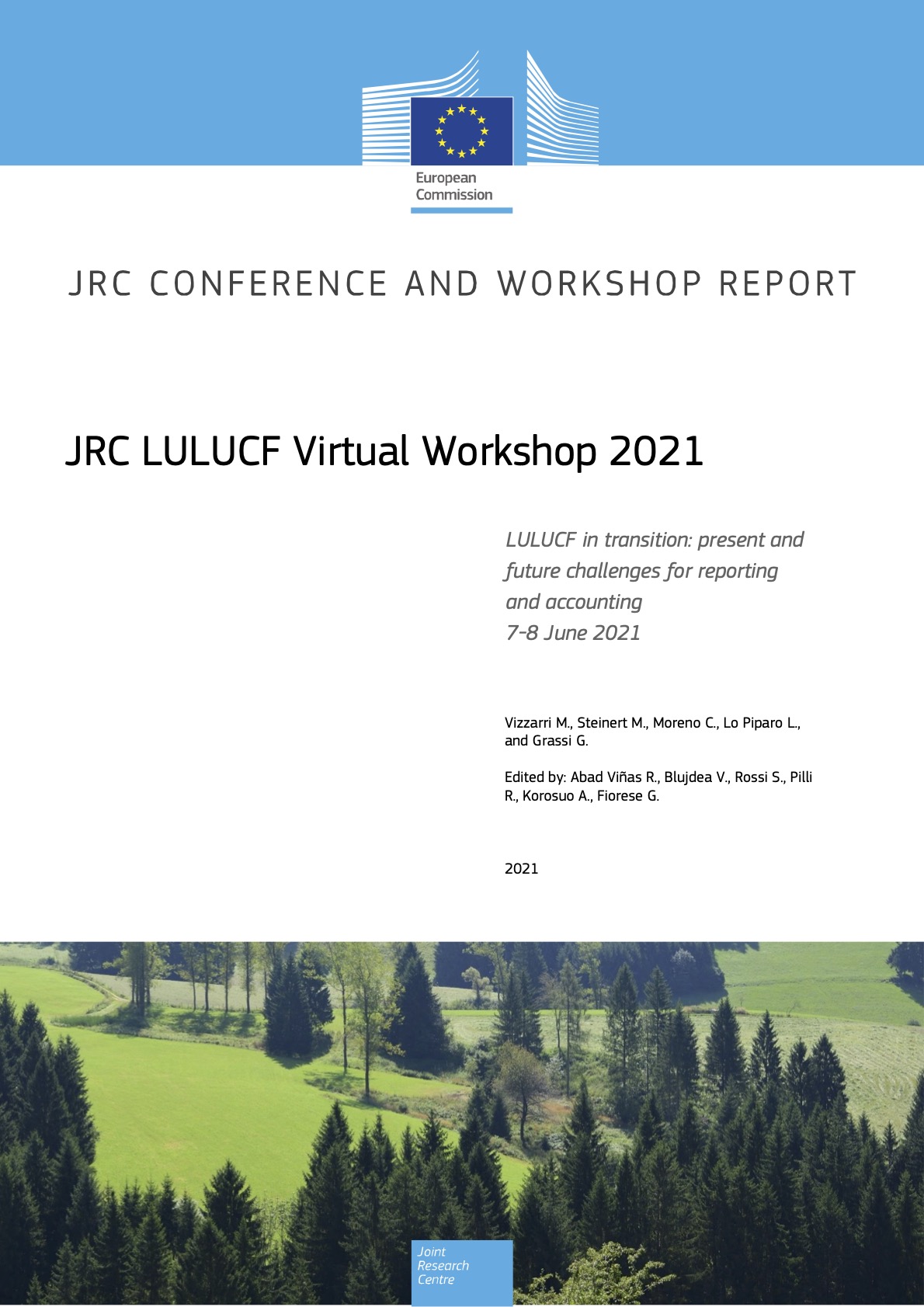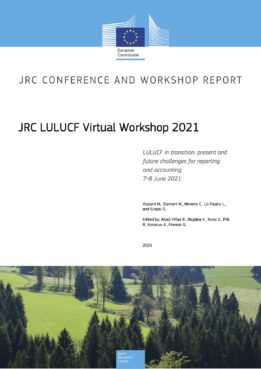Technical support for LULUCF virtual workshop 2021
Publication date: 4 november 2021 | Report language: EN
The EU is at the forefront in fighting climate change. Following the commitments relevant for the Paris Agreement, the EU has recently pledged to cut off 55% of greenhouse gas (GHG) emissions by 2030 compared to 1990 and to reach climate neutrality in 20501. Currently, the Land Use, Land-use Change and Forestry (LULUCF) sector counterbalances about 8% of total GHG emissions from other sectors in EU2. Sectors like energy and transport are expected to significantly contribute to the emission reduction effort, but now the LULUCF sector also plays an increasing relevant role. However, to ensure the whole credibility of the LULUCF sector and enhance its mitigation potential, the EU and its Member States need to tackle several challenges related to transparency, robustness and comparability of both reporting and accounting of GHG emissions. Moreover, the current revision of the EU climate-related policies will also put the reporting and accounting of GHG emissions in this sector for the EU, as well as its alignment with international commitments for mitigation, under focus.
To address these challenges, the Joint Research Centre’s organized the annual workshop on the topic of Land use, Land-use Change and Forestry (LULUCF) with the title LULUCF in transition: present and future challenges for reporting and accounting. The workshop was carried out in cooperation with Technopolis Group on the 7th and 8th of June 2021.
The aim of the workshop was to gather relevant experts and representatives from Member States (MS) to discuss the main challenges related to the reporting and accounting of the LULUCF sector, in compliance with current principles and requirements of the EU climate policy. The workshop had both a technical and scientific dimension, and it involved DG CLIMA, EEA, representatives from Member States and other countries outside the EU, together with scientists and researchers. In total, 128 participants registered to the event and a total of 115 participants joined the workshop including 19 speakers from around the EU who contributed with presentations on different LULUCF related topics.
The workshop was structured into three thematic sessions. Session 1 covered the present challenges for LULUCF reporting and accounting. In particular, this session provided an overview of the most recent LULUCF inventory at EU level, including preliminary outcomes of the QAQC process, and highlighted the main aspects related to closing the second commitment period of the Kyoto Protocol, with a specific focus on the Forest Management Reference Level and the need for technical corrections. Session 2 covered the future challenges for LULUCF reporting and accounting. This session outlined some crucial steps in the future development of GHG inventories and provided a room for discussing the main challenges to ensuring compliance with the LULUCF Regulation by 2030. Session 3 focused on the contribution from science to the reporting of LULUCF. This session covered topics such as (but not limited to) holistic management of soils, role of Earth Observation in the reporting of LULUCF, the accounting of emissions from natural disturbances, and synergies between the Common Agricultural Policy and LULUCF inventories. All sessions were followed by specific interactive polls to stimulate feedbacks from participants on the topics treated. At the end of each session, time was allocated to deepen the discussion.
In this report we summarise the main outcomes of the workshop through a synthesis of the presentations and of the discussions held during the two days virtual meeting. The agenda and the participant list are in the annexes. Full presentations can be found here.




